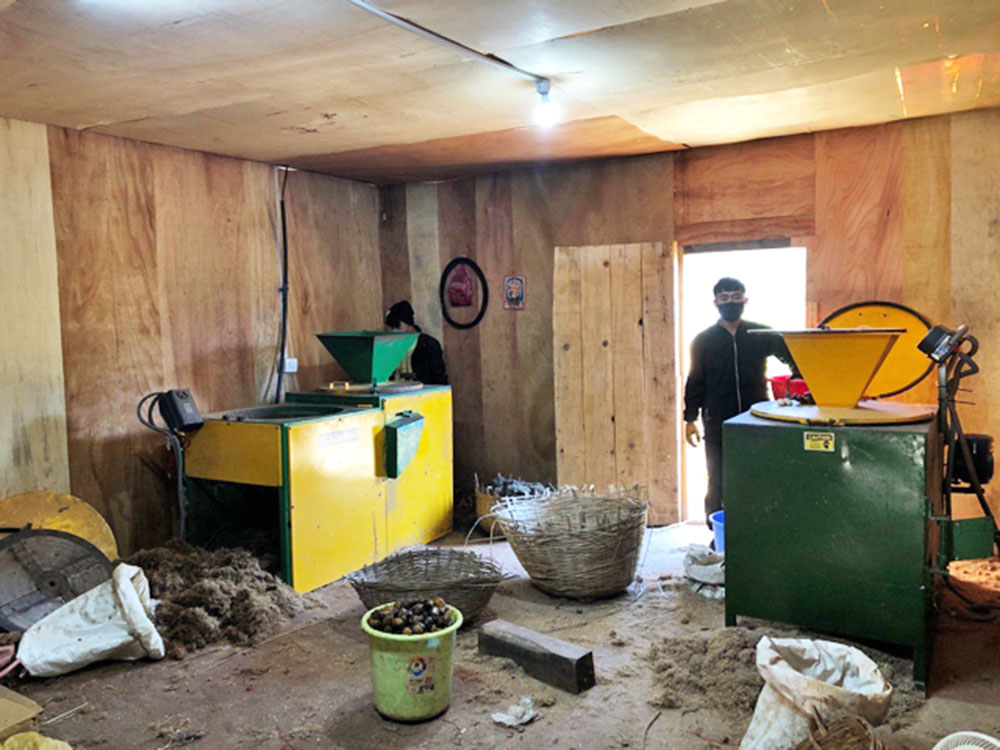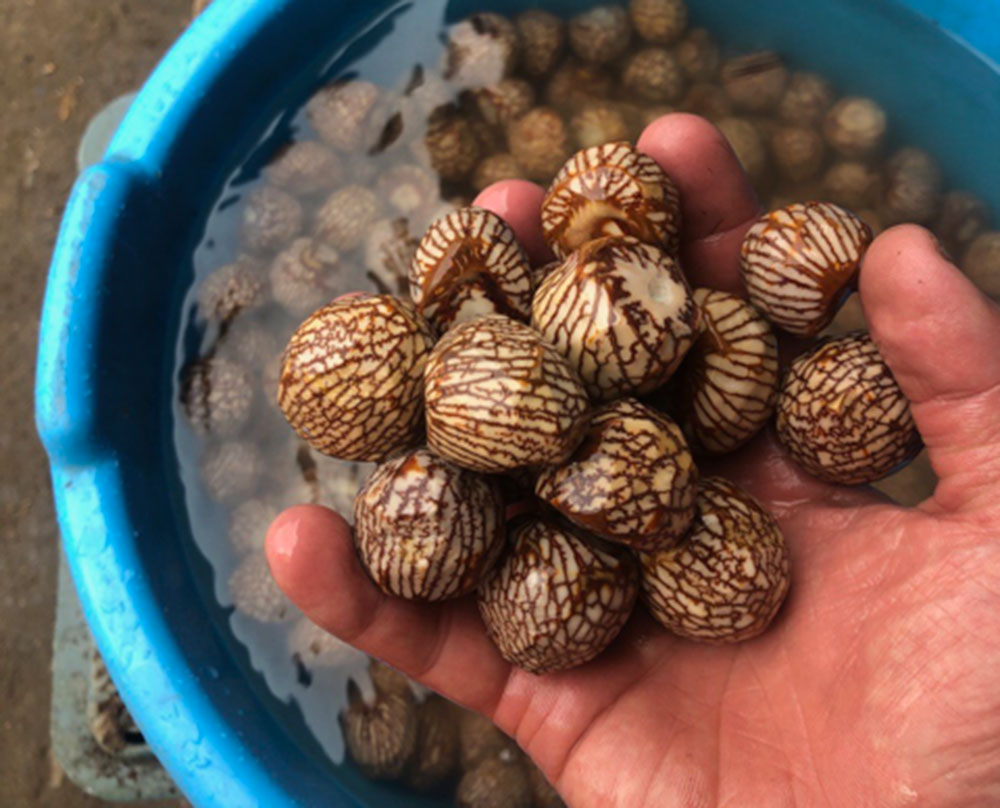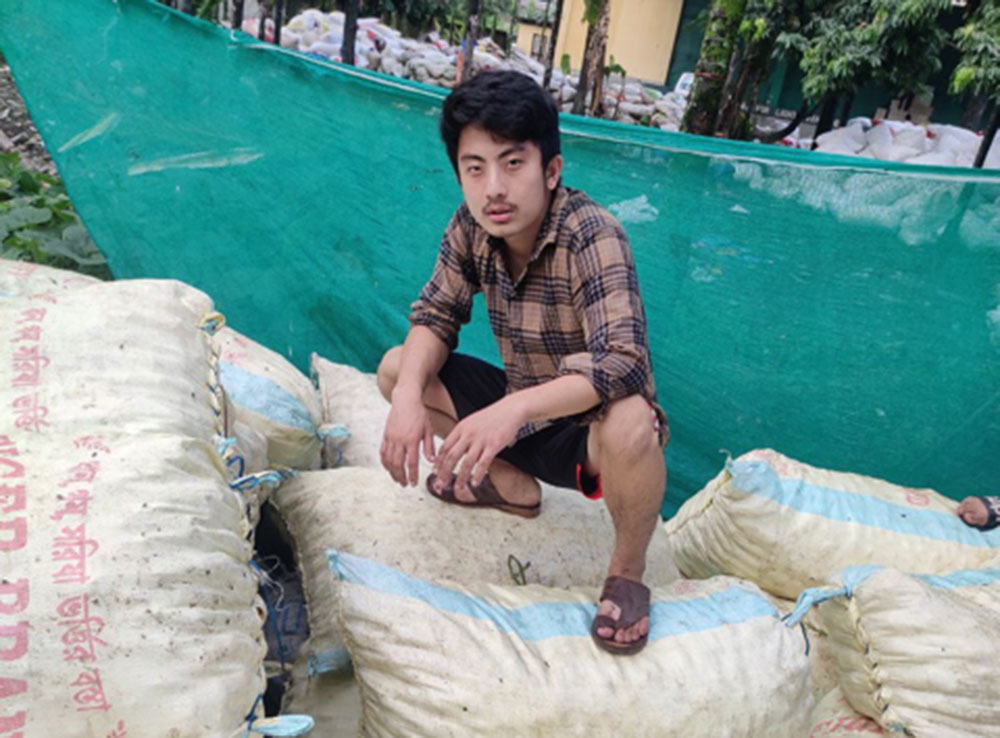Phurpa Lhamo
A few months after graduating from Sherubtse College with a degree in population and development studies, Tashi Gyeltshen was venturing into something different from his friends.
The 22-year-old man had always wanted to do business and when he met like-minded friends Suk Bdr Rai and Parshu Ram Sharma, the team started to sell doma in April this year.
The business Druk Dramzang Doma buys betel nuts from locals in Samtse and peels them before selling them to customers.
While doma eaters love the taste, there is a lot of labour that goes into making them consumable.
“The smell is pungent and it doesn’t wash off. Sometimes there are maggots, too,” Tashi Gyeltshen said.
For the young graduate, the stress of business and physical labour is immense.
“Our education doesn’t prepare us for this. We aren’t taught to manage this kind of work,” Tashi Gyeltshen said.


Druk Dramzang Doma has employed 18 women in Paro, mostly housewives.
When it began, as for many young entrepreneurs, funding was a challenge.
The Samtse dzongkhag administration supported the team in availing a loan of Nu 2.95 million (M) through the National Credit Grant Scheme (NCGS).
“However, that amount was not enough,” Tashi Gyeltshen said. “We used that funding to procure doma from farmers in Samtse.”
The team needed an additional budget of more than Nu 17M to fully establish the business, procuring machines and mostly paying for doma and manpower.
While many other business ideas seemed profitable, Tashi Gyeltshen wanted to venture into businesses beneficial not only to him, but to the people and the country.
Learning that Bhutan imported doma, often at double the price at which it was sold to India, the idea to buy and supply doma within Bhutan interested him.
The Trade Statistics 2021 report stated that between April and June alone, almost 46 million (M) worth of betel nuts (with shells and shelled) were imported.
He claimed that after the business started in April this year, the team bought almost 40 percent of betel nuts produced in Samtse by buying 348,000kg of betel nuts from Bhutanese farmers.
“Almost 90 percent of betel nuts from Samtse are sold to India,” Tashi Gyeltshen said.
Through this procurement, farmers made Nu 85 per kg of doma, an increase from Nu 45. “With us in the market, the competition benefited the farmers.”
To encourage farmers to sell the betel nuts to Bhutanese manufacturers and buyers, the Samtse dzongkhag administration had awareness programmes.
Druk Dramzang Doma has employed 15 people in Samtse. It also has a branch factory in Paro.
Tashi Gyeltshen said that there were 18 workers in Paro. According to him, 16 of the workers are housewives.
He said they provided job opportunities to individuals with challenging economic backgrounds. “The business is making slow but promising returns now.”
However, competing with Indian counterparts remains a major challenge. Also, when the product was stuck in Samtse due to lockdown, the team lost a few sacks to thieves.
Today, the team is looking to expand their business: to introduce more factory branches, buy all stock from farmers in southern Bhutan, and produce suparis (sweetened areca).
Tashi Gyeltshen said that the team has leased 2.3 acres of land in Samtse, which will be used for preserving and storing doma. “Currently we use the Food Corporation of Bhutan space in Samtse.”
The young entrepreneur is optimistic. “A friend said, ‘You have to start low because when you start low, you can never go down.’ That inspired me,” he said. “My parents have supported and advised me throughout the process.”
The Samtse dzongkhag administration and the Ministry of Economic Affairs also helped the team build its business.
Tashi’s partner, Parshu Ram Sharma, said that working with a young partner meant new ideas and flexibility. “Tashi works harder than we expected.”


